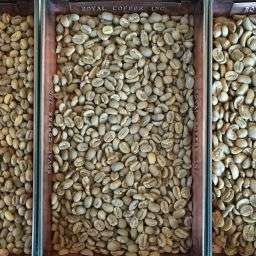
Decaf coffee beans are a cornerstone in the world of coffee, catering to those who seek the rich, aromatic experience of coffee without the stimulating effects of caffeine. Their inception into the coffee market has been a boon for coffee enthusiasts sensitive to caffeine or those wishing to limit their intake for health reasons. The demand for decaf coffee has seen a significant rise, reflecting a growing appreciation for its nuanced flavors and the varied decaffeination processes that preserve the bean’s essence.
What is Decaf Coffee?
Decaffeinated coffee, commonly known as decaf, undergoes a process where about 97% of the caffeine content is removed from the beans. The objective is to retain the coffee’s original flavor as much as possible, minus the caffeine. There are several methods to decaffeinate coffee, including using water, organic solvents, or carbon dioxide.
A standout method among these is the Swiss Water® Process, revered for its chemical-free approach to decaffeination. This process begins with green coffee beans being soaked in hot water to dissolve the caffeine. The water is then passed through a charcoal filter, which captures caffeine molecules while allowing oils and flavor molecules to pass through.
The beans are then reintroduced to this flavor-saturated liquid, where the osmosis process removes caffeine without affecting the bean’s flavor profile. This method is celebrated for its ability to decaffeinate coffee naturally and organically, without the need for chemical solvents, thus preserving the beans’ delicate flavor nuances and ensuring a cleaner, healthier cup of coffee.
The Swiss Water® Process’s chemical-free attribute aligns perfectly with the growing consumer preference for organic and natural products. It stands as a testament to the coffee industry’s innovation, ensuring that decaf coffee drinkers do not have to compromise on taste for the sake of wellness and health.
The Decaffeination Process Explained
The journey of transforming regular coffee beans into decaf is achieved through several decaffeination processes, each with its unique impact on the bean’s flavor and health profile. The most commonly employed methods are the Swiss Water Process, CO2 Process, and solvent-based methods.
Swiss Water Process: This method is entirely chemical-free, using only water to remove caffeine. Green coffee beans are soaked in hot water to dissolve caffeine, then the water is filtered through activated charcoal to remove caffeine, while oils and flavors remain intact. The beans are reintroduced to this flavor-saturated liquid, allowing them to regain their original essence without the caffeine. This method is praised for maintaining the bean’s flavor integrity and health safety.
CO2 Process: Also known as the Supercritical Carbon Dioxide method, it uses CO2 in a supercritical state to extract caffeine. The beans are placed in an extraction vessel where they are exposed to compressed CO2. The CO2 acts as a solvent to dissolve and extract caffeine, without significantly impacting the beans’ flavor compounds. This method is favored for its efficiency and minimal environmental impact.
Solvent-Based Methods: These involve the use of chemical solvents like methylene chloride or ethyl acetate to remove caffeine. The beans are either soaked directly in the solvent or steamed, allowing the solvent to penetrate and dissolve the caffeine. While effective in decaffeination, these methods have raised concerns regarding potential health impacts and the possibility of solvent residues remaining in the coffee.
Decaf coffee beans often come with certifications like organic and Kosher, indicating adherence to specific health, quality, and ethical standards. Organic certification ensures the beans are grown without synthetic pesticides or fertilizers, and the decaffeination process is free from harmful chemicals. Kosher certification assures adherence to Jewish dietary laws, including the purity of the decaffeination process.
Types of Decaf Coffee Beans Available
The market for decaf coffee beans is as diverse as that for regular coffee, with various roast profiles, organic options, and the choice between single-origin and blends.
Roast Profiles: Decaf beans are available in light, medium, and dark roasts, catering to a range of taste preferences. Light roasts retain more of the bean’s original flavor characteristics, while dark roasts offer a bolder, more robust taste.
Organic Options: For health-conscious consumers, organic decaf beans are produced without synthetic pesticides or fertilizers, and the decaffeination process avoids the use of chemical solvents, making them a cleaner, healthier choice.
Single-Origin vs. Blends: Single-origin decaf beans come from a specific region, offering unique flavor profiles characteristic of their terroir. Blends combine beans from various origins, creating a balanced and consistent flavor.
Popular decaf coffee brands like Lifeboost and Volcanica showcase the range of options available. Lifeboost’s decaf is noted for its low acidity and mycotoxin-free beans, using the Swiss Water Process for decaffeination. Volcanica offers a Papua New Guinea decaf, celebrated for its rich and flavorful profile, also decaffeinated using the Swiss Water Process. These brands highlight the premium quality and diverse taste experiences available in the world of decaf coffee.
How to Choose Decaf Coffee Beans
Selecting high-quality decaf coffee beans involves careful consideration of several factors to ensure a satisfying cup that doesn’t compromise on taste or health benefits:
- Decaffeination Process: Opt for beans decaffeinated using the Swiss Water Process or CO2 Process to avoid chemical residues and preserve the bean’s natural flavors.
- Origin: The bean’s origin can significantly influence its flavor profile. Single-origin beans offer unique tastes characteristic of their specific growing region, while blends provide a balanced flavor from multiple origins.
- Roast Level: Light, medium, and dark roasts offer varying degrees of richness and acidity. Choose based on your preference for a more nuanced or robust flavor.
- Flavor Profile: Consider the bean’s flavor notes, such as fruity, nutty, or chocolatey, to match your taste preferences.
Brands like Lifeboost and Volcanica stand out for their commitment to quality, using environmentally friendly decaffeination processes and sourcing beans from high-quality, sustainable farms.
Brewing the Perfect Cup of Decaf Coffee
The brewing method plays a crucial role in extracting the best flavor from decaf coffee beans:
- Cold Brew: Ideal for decaf beans as it minimizes acidity and bitterness, enhancing the beans’ inherent flavors. Cold brew offers a smooth, rich taste that’s perfect for those sensitive to acidity.
- General Brewing Tips:
- Use fresh, cold water for brewing to ensure the best flavor extraction.
- Experiment with brewing times and temperatures to find the perfect balance for your chosen beans. Decaf beans may require slightly different parameters than regular beans to achieve the best taste.
- Grind beans just before brewing to preserve their freshness and flavor. A finer grind is suited for espresso, while a coarser grind works well for cold brew and French press methods.
Decaf Coffee Beans FAQ
Can you really buy decaf coffee beans? Yes, decaf coffee beans are widely available across a variety of blends, roasts, and decaffeination processes, catering to diverse tastes and preferences.
Is decaf coffee completely caffeine-free? While not 100% caffeine-free, decaf coffee contains significantly less caffeine than its regular counterpart, making it a suitable option for those looking to reduce their caffeine intake.
Does the flavor of decaf coffee differ from regular coffee? Decaf coffee offers a broad spectrum of flavors, similar to regular coffee, depending on the beans’ origin, roasting process, and decaffeination method. Quality decaf can provide an enjoyable coffee experience without the caffeine.
Final Thoughts
Decaf coffee beans present a world of choice for those seeking the rich experience of coffee without the caffeine. Through careful selection and brewing, it’s possible to enjoy a cup that rivals the taste and complexity of regular coffee. Embracing decaf means welcoming a versatile, health-conscious option into your coffee repertoire, without sacrificing flavor or quality.









